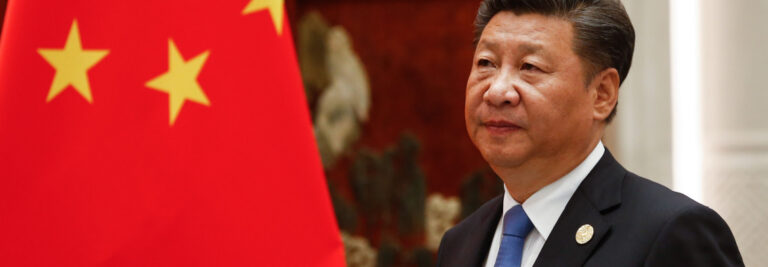American businesses have proactively pursued positive US-Taiwan economic ties, despite sporadic official trade talks and visits by US Cabinet-rank officials. On June 23, the president of the American Chamber of Commerce in Taiwan (AmCham) released its new annual White Paper of 2021. He remarked that the Biden Administration will resume talks (after a five-year suspension) under the Trade and Investment Framework Agreement (TIFA), called the TIFA Talks. AmCham has reported record-high optimism and progress in the Tsai Administration’s resolution of commercial concerns. This closer cooperation helps to fill a gap in the US government’s support for a partner that has strategic importance and advanced technology. Washington needs to ensure consistency in strong, normal ties with Taipei. Taipei needs to ensure resiliency and reliability as an economic partner. What are the policy options?
Sporadic TIFA Talks and Cabinet-rank Visits
Despite long-time congressional calls to enhance engagement with Taiwan, including a bilateral trade agreement (BTA), sporadic official trade talks and US cabinet-rank visits have not matched US interests in Taiwan’s economic and geo-strategic importance. Taiwan is our 10th largest trading partner. Taiwan needs economic strength plus diversification to avoid vulnerability from over-dependence on China.
The Trump Administration strengthened diplomatic and military support for Taiwan, particularly by repairing the arms sales process in favor of regular, normal notifications to Congress. However, Trump failed to resume routine trade talks and show international leadership in this area. An issue has been whether the United States Trade Representative (USTR) and Taiwan’s officials should resume talks under the 1994 TIFA, or TIFA Talks, that were suspended after 2016. Without TIFA Talks, the State Department initiated with Taiwan an Economic Prosperity Partnership Dialogue (EPPD) in November 2020. This suspension was not the first one. Previously, the USTR did not hold TIFA Talks for six years until resuming them in 2013.
In addition, visits by US Cabinet-rank officials started regularly in 1992 but became sporadic after 2000, with gaps of many years. Such visits took place in 1992 (USTR), 1994 (Secretary of Transportation), 1996 (Small Business Administrator), 1998 (Secretary of Energy), 2000 (Secretary of Transportation), 2014 (Environmental Protection Agency’s Administrator), and 2020 (Secretary of Health and Human Services). They focused on economic or functional areas.
Taiwanese Freedom to Choose Agricultural Products
Taiwan was our 6th largest agricultural market in 2019. However, a long-standing dispute in bilateral trade has concerned US beef and pork. Although many Taiwanese prefer these products, this dispute became a politicized controversy. A common misconception then exacerbated this controversy. In fact, Taiwanese consumers should realize that they are not forced to buy any items in their free market. Since 2003, the two sides have dealt with this dispute, with concerns first about bovine spongiform encephalopathy (BSE), or “mad cow disease,” then about ractopamine (a safe additive to promote leanness). In 2009, then-President Ma Ying-jeou (馬英九) concluded a bilateral agreement related to beef. But Taiwan abrogated it unilaterally, prompting questions about unreliability. [1] Taiwan also raised restrictions against US pork with ractopamine.
But Taiwan cannot afford self-isolation. Taiwan is dependent on international trade and faces an existential threat from China. In August 2020, President Tsai Ing-wen (蔡英文) announced a long-awaited decision to resolve this irritant. On January 1, 2021, Taiwan removed trade barriers by setting scientific standards to import US pork with ractopamine and US beef from cattle over 30 months of age. Taiwan can ensure food safety by observing scientific and international standards as well as restore its reputation as a reliable trading partner. This step is important to unfreezing the TIFA Talks.
Record-High Optimism and Progress for Commerce
Despite this uneven policy context under successive US and Taiwanese presidents, US companies have promoted bilateral trade and investment as well as economic conditions that benefit foreign and Taiwanese businesses. Since 2016, the Tsai Administration has made belated but important progress. Representing disappointed US businesses, AmCham regretted in its 2017 Annual Report that none of 80 issues could be resolved with Taiwan’s government.
By 2021, however, AmCham has touted two record-high measures of optimism and progress. First, despite the global pandemic in 2020, almost 86 percent of surveyed businesses expressed confidence in Taiwan’s economic outlook, an unprecedented level of optimism reported in AmCham’s 2021 Business Climate Survey. Shifts in the global supply chain have prompted a brighter outlook, since Taiwan’s importance has increased as a reliable, secure partner for sensitive technology.
Second, AmCham has expressed enthusiasm about Taiwan’s progress in dealing with concerns faced by industries. On June 23, AmCham released its 2021 White Paper and reported Taiwan’s resolution of a record 13 issues (out of 92 from the previous year) in regulating industries. Taiwan also made satisfactory progress toward resolving 23 other issues. Nonetheless, 23 issues are still under observation, and 29 issues are stalled. AmCham dropped four issues.
In summary, AmCham applauded that Taiwan resolved 13 issues in these industries or areas:
- Asset Management (2 issues solved)
- Banking (2 issues solved)
- Capital Markets (1 issue solved)
- Chemical Manufacturers (1 issue solved)
- Cosmetics (1 issue solved)
- Energy (1 issue solved)
- Infrastructure and Engineering (1 issue solved)
- Intellectual Property and Licensing (1 issue solved)
- Private Equity (1 issue solved)
- Technology (2 issues solved).
Hong Kong, Singapore, or Tokyo, but Not Taipei?
However, AmCham assessed that Taiwan stalled in dealing with 29 priorities in these areas:
- Agro-Chemical (4 issues stalled)
- Asset Management (1 issue stalled)
- Chemical Manufacturers (1 issue stalled)
- Chiropractic (1 issue stalled)
- Cosmetics (1 issue stalled)
- Human Resource (3 issues stalled)
- Intellectual Property and Licensing (2 issues stalled)
- Medical Devices (2 issues stalled)
- Public Health (1 issue stalled)
- Retail (4 issues stalled)
- Sustainable Development (2 issues stalled)
- Telecommunications and Media (2 issues stalled)
- Tobacco (1 issue stalled)
- Transportation and Logistics (1 issue stalled)
- Travel and Tourism (3 issues stalled).
This author recently talked with someone about an American financial company that considers operating in Hong Kong, Singapore, or Tokyo, but not Taipei. This snapshot raised a question of how Taiwan should give incentives and improve its attractiveness to foreign businesses. [2]
Policy Options in Washington and Taipei
US and Taiwanese officials could further support businesses. Members of Congress have called for closer cooperation with Taiwan, including negotiation of a BTA. President Biden could start talks on such a BTA, before fully setting his overall trade agenda. Congress did not stipulate an “unofficial” relationship under the 1979 Taiwan Relations Act (TRA), and senior-level official talks and visits should not be sporadic (as discussed above). Policymakers could resume routine, normal TIFA Talks and US Cabinet-rank visits in the present and future. Washington could upgrade the TIFA Talks to be led by the USTR, instead of the Deputy USTR. It is overdue for the USTR to visit Taipei, with the last occasion occurring in 1992. Policymakers could plan US leadership concerning Taiwan’s potential participation in multilateral trade agreements.
Policymakers could enhance engagement with two umbrella organizations, AmCham and the US-Taiwan Business Council, which have represented the priorities and perspectives of private industries for many years. They launched a US-Taiwan BTA Coalition in September 2020.
US policy could support commercial interests. AmCham’s president urges these other actions:
- expand the EPPD to include the private sector’s participation;
- develop bilateral trade and investment platforms under the Commerce Department;
- conclude a double taxation agreement to prevent redundant taxation of incomes;
- include Taiwan in international discussions with European and Asian countries, like Japan.
Taiwan could improve its economic environment and economic security. In its new Annual Report, AmCham urges Taiwan’s urgent attention to these particular priorities:
- accelerate the shift to conduct business digitally, instead of manually or on paper;
- strengthen supply chains to ensure they remain safe, secure, and reliable;
- ensure reliable energy supply, including investments in gas-fired, solar, and wind power;
- boost fully bilingual capability by 2030, including reforms in teaching English;
- set up a sovereign wealth fund (SWF), including investing Taiwan’s large foreign reserves.
The main point: US businesses see record-high optimism and progress in 2021, despite the record of sporadic, senior official US-Taiwan discussions for deliverables. Policymakers in Washington and Taipei could build on that bottom-up ambitious energy and exercise top-down leadership for shared economic security.
[1] On October 22, 2009, then-President Ma agreed to conclude two years of bilateral negotiations on a US-Taiwan agreement to relax Taiwan’s restrictions on imports of US beef, which the United States assured was safe. However, both the ruling Kuomintang (KMT) and opposition Democratic Progressive Party (DPP) complained. In January 2010, the Legislative Yuan passed a bill to ban ground beef, parts, and risky materials from areas with “mad cow disease” in the past 10 years. The USTR and Members of Congress criticized Taiwan’s unilateral abrogation of a signed agreement; political, unscientific restrictions and questions of safety about US beef; and violations of principles in international trade that harmed US exports.
[2] Author’s conversation with a knowledgeable American expatriate on June 17, 2021.




